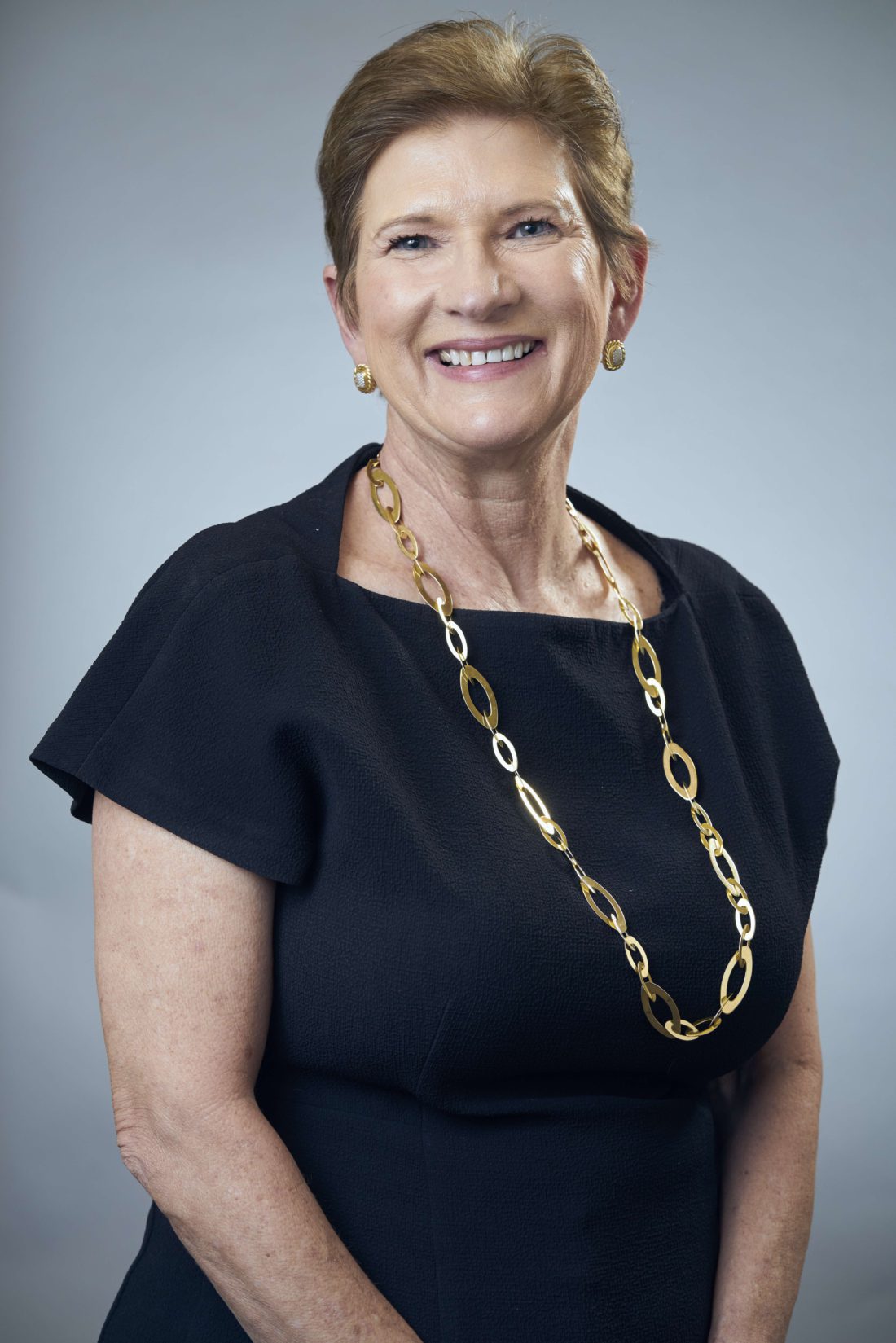Shows curiosity, likes to play with others, tries to get things that are out of reach, responds to other people’s emotions — like an actual infant, the 6-month-old Dogwood Health Trust is showing many signs of age-appropriate development. Following the DHT’s official birth on Feb. 1, a result of Mission Health’s purchase by Nashville-based, for-profit HCA Healthcare, its staff and board of directors have been working to raise the nonprofit right.
The DHT is a very big baby and one with the potential to grow into a regional giant. The foundation will eventually steward roughly $1.5 billion resulting from the Mission Health sale and expects to spend $60 million to $75 million annually on “dramatically improving the health and well-being of all people and communities of Western North Carolina,” according to a fact sheet. Given the area’s relatively sparse population — just over 900,000 across 18 counties — the DHT’s leaders believe it to be the nation’s largest nonprofit foundation per capita.
Janice Brumit, chair of the DHT’s board of directors, says the fledgling foundation has so far focused on its goals and internal operations, with months to go before its first funding steps. After the nonprofit hires its inaugural CEO and finishes its strategic plan later this year, she estimates that other organizations will be able to apply for its grants starting in the spring of 2020 and receive money the following fall.
In the meantime, says DHT leadership team staffer Lakesha McDay, the trust will keep exploring its mission and building relationships with people throughout the region. “The work of Dogwood is to continue to listen,” she explains. “Each county is unique, and within each county, each community is unique.”
Xpress met with Brumit, McDay and public relations representative Liz Chandler of Charlotte-based firm Luquire George Andrews to discuss the nonprofit’s progress and future plans. The three described a foundation with both ambitious goals and a measured approach toward achieving them.
Lend an ear
The trust’s first major outward-facing effort has been a series of listening engagements with nonprofit leaders across the DHT service area. McDay says those leaders, who will interact regularly with the trust once it begins funding programs, represent DHT’s “core public” for outreach.
“We were asking them what do they see as a healthy community, what makes a healthy community, what are the barriers to healthy community?” says McDay. “What helps and what hinders addressing the social determinants of health?”
The DHT plans to compile that input into “a very readable, bite-sized communication,” McDay says, which will be released publicly within the next month. Although reluctant to share details in advance of that release, the Dogwood representatives mention spotty broadband internet access and a lack of connection between existing nonprofits as issues that emerged from the listening sessions.
Members of the general public will get their first chance to share concerns with DHT in person during the fall, when the nonprofit will hold an open event in each of its three geographical divisions. These meetings were mandated by Attorney General Josh Stein as part of his conditions for approving the Mission Health-HCA transaction; the trust had not originally guaranteed any opportunity for public input.
Brumit says the trust has not yet determined specific times or locations for those meetings. She notes that they will involve both public participation and talks by national health leaders. The meetings will also likely be the first public events for the nonprofit’s yet-to-be-named CEO, who will be chosen from the current field of three finalists.
Nuts and bolts
While the trust’s professional leadership remains under consideration, Brumit confirms that its board has filled out its inaugural complement of 15 members, all drawn from WNC. On Aug. 7, the DHT announced the appointment of Donna Tipton-Rogers, the president of Tri-County Community College in Murphy; board members had explored tapping a national expert on the social determinants of health for the final seat but now anticipate that their CEO hire will hold that expertise.

Brumit also praises the board’s regional and racial diversity, for which she and the foundation earlier faced criticism by community groups such as the Asheville-Buncombe NAACP, Just Economics of WNC and YWCA of Asheville and WNC. (See “Get on board,” Xpress, Dec. 12.) Since an Oct. 26 op-ed critiquing the board’s makeup published in the Citizen Times by Carmen Ramos-Kennedy, the local NAACP chapter president, the trust has added six board members, four of whom have been women of color.
“Every meeting, we have an exercise in diversity, equity and inclusion,” Brumit says. “We think that is one of our guiding principles and in fact is the very first guiding principle in our values.”
The board leads what Brumit calls a “skeleton staff” of 14, seven managing the DHT itself and seven working with the hospital legacy foundations that also spun out of the Mission-HCA deal. She says the trust’s CEO will flesh out that manpower after his or her hiring, eventually reaching a headcount of 35-50 in line with organizations of similar size.
“One of the things I love about our board — I see them almost as much as I see the folks that I work with every single day at the organization,” notes McDay. “That has been my first interaction ever in an organization where I have seen the board at work every day.”
Chandler adds that the trust has yet to receive its full $1.5 billion endowment and is still in the early stages of determining how it will invest those funds long term. She says the Boston-based firm Cambridge Associates is currently handling the money and that a separate investment committee of the board is “reviewing Dogwood’s current investments and developing a range of policy recommendations for managing its eventual assets.”
DHT representatives declined to share any further details about the nonprofit’s finances, including which board members are serving on the investment committee and how much money it can currently access. The trust also would not comment on divestment from the fossil fuel industry as a means to combat climate change, which the Centers for Disease Control and Prevention says will likely lead to widespread negative public health outcomes.
Smart money
At least some of the trust’s resources have already been spoken for: As part of Stein’s conditions, the DHT agreed to invest $25 million over five years in work related to the region’s opioid crisis. Brumit says the board has been collaborating closely with Dr. Mandy Cohen, the state’s secretary of health and human services, and will begin funding those programs in the fall of 2020.
Beyond that initiative, Brumit emphasizes that the trust is still determining its strategic direction. One key approach to getting the most bang for the DHT’s buck, she says, will be investing in depth rather than breadth.
“I think we have to be very careful not to allow mission creep. It’s very easy, because it is such a big and bold, all-encompassing idea of drivers of health or social determinants of health,” Brumit explains. “We have to be focused.”
Brumit is excited about the trust’s potential for long-term grants, making more permanent commitments than the one or two years many nonprofits can support. Chandler suggests that such work could set the agenda for funders throughout WNC, including county governments, businesses and other large nonprofits such as The Duke Endowment and Z. Smith Reynolds Foundation.
“It’s about really moving collective impact. [Dogwood has] this great seed to start with; they’ll fund certain things, and then I think it brings other people to the cause, whichever cause they’re identifying,” Chandler says.
Although the DHT is a nonoperating foundation, meaning that it will not run its own charitable programs, the trust plans to offer a number of support services for other nonprofits. McDay says that will include grantwriting assistance and other support for grassroots “organizations where people are wearing 10 hats” — a way to remove systemic barriers for already challenged populations.
And Brumit believes the trust can become a regional think tank for social determinants of health, which she defines as “everything that happens upstream of the hospital.”
“We want to be the known source for information regarding WNC on health, wellness and all of that information that surrounds that,” she says. “That’s part of our mission, to be that valued source of information and continually be able to educate anyone in the region that needs that type of information.”



Before you comment
The comments section is here to provide a platform for civil dialogue on the issues we face together as a local community. Xpress is committed to offering this platform for all voices, but when the tone of the discussion gets nasty or strays off topic, we believe many people choose not to participate. Xpress editors are determined to moderate comments to ensure a constructive interchange is maintained. All comments judged not to be in keeping with the spirit of civil discourse will be removed and repeat violators will be banned. See here for our terms of service. Thank you for being part of this effort to promote respectful discussion.